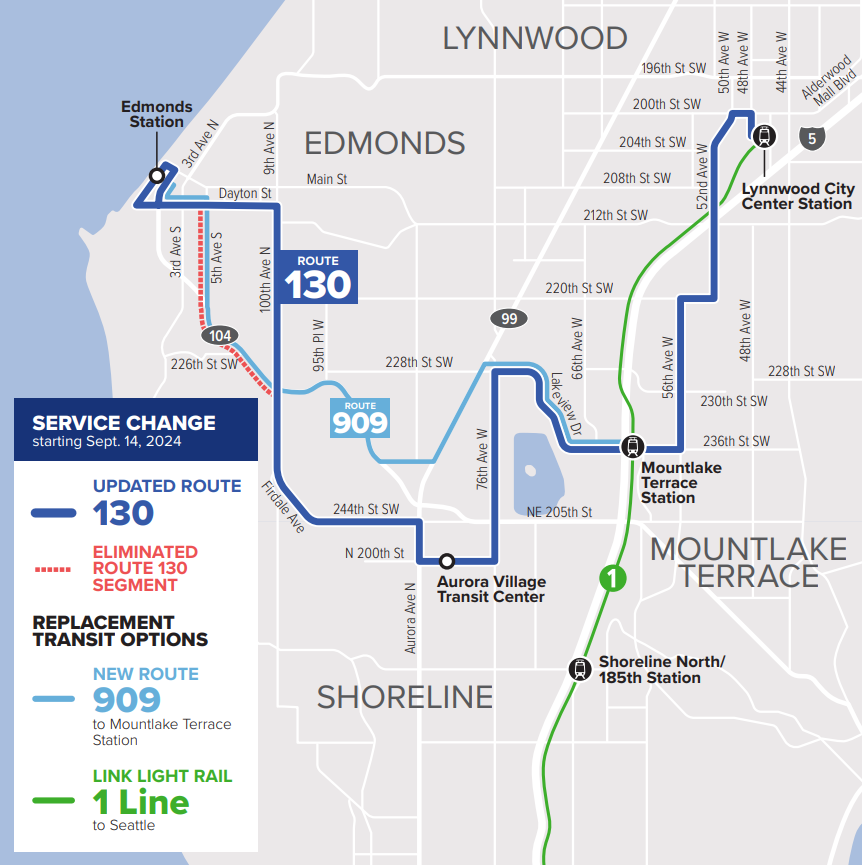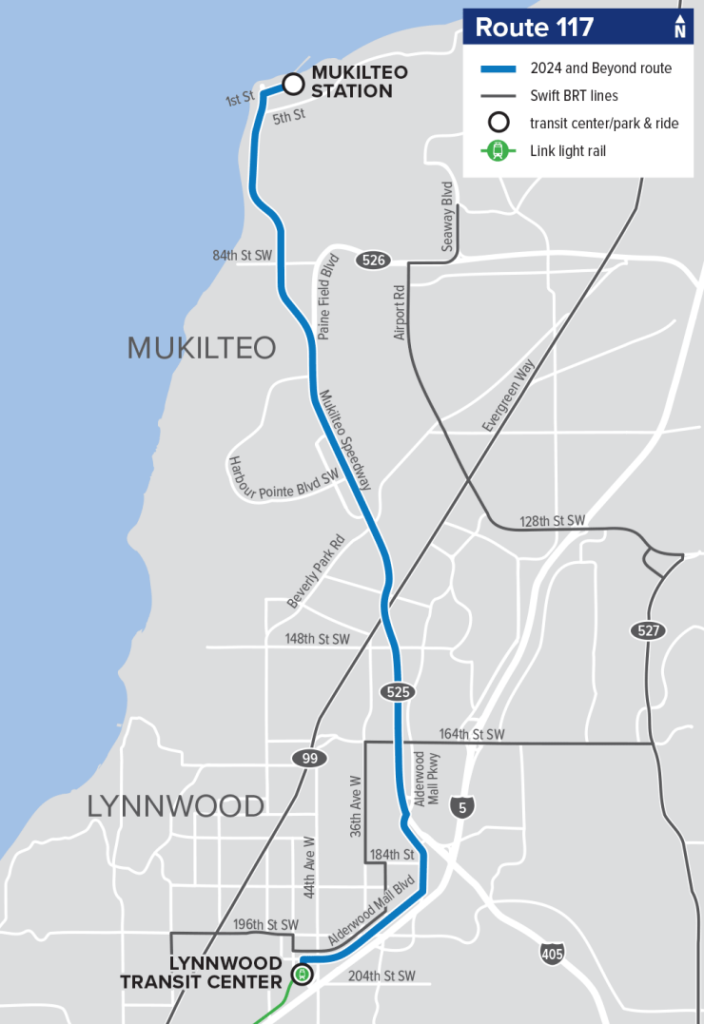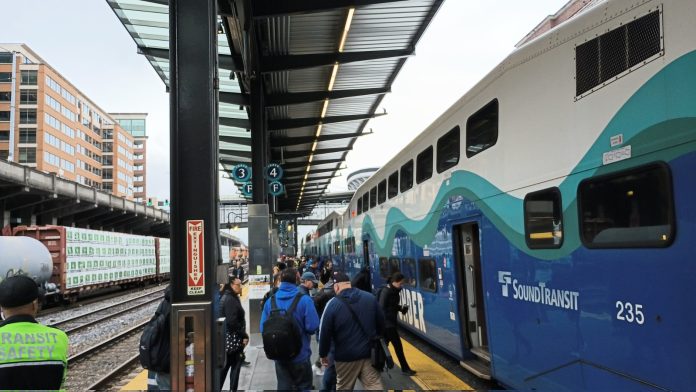
Sound Transit will increase commuter rail service on the Sounder North line between Downtown Seattle and Everett, starting September 16. The agency announced the number of daily round trips on the N Line will double to four southbound trips during the morning commute and four northbound trips during the afternoon commute. Unlike on the higher ridership Sounder S Line between Seattle and Lakewood (via Tacoma), there will continue to be no reverse commute trips in the opposite direction, and trips will continue to be heavily concentrated around traditional 9-to-5 commuting hours on weekdays only.
Sound Transit has been working toward restoration of the two round trips that were cut from the N Line’s schedule in early 2020 in response to the Covid-19 pandemic. Compared to the approximately 1,300 riders per day that were using the N Line before that service cut, average daily ridership currently hovers around 300. That’s around 5% of the S Line, which runs 13 round trips every weekday. The N Line has long suffered from low ridership compared to its southern counterpart, but the restored trips are expected to play a small but needed role in Sound Transit’s expansion plans over the coming months and beyond.
The new trips are planned to leave Everett Station at 6:15am, 6:45am, 7:15am, and 7:45am weekday mornings, and return via King Street Station at 4:05pm, 4:33pm, 5:15pm, and 5:41pm. Full travel time end-to-end is just under one hour. ORCA users can also access Amtrak Cascades trips along the same route, with service at Edmonds and Everett — but not Mukilteo — via the Rail Plus program.
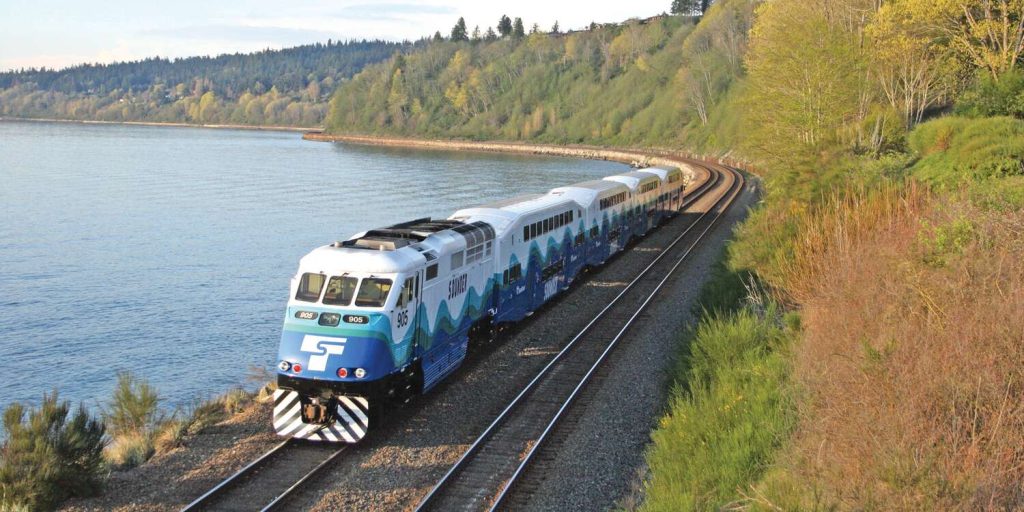
These additional N Line trips will start running just two weeks after Sound Transit starts Link light rail service in Snohomish County with the launch of Lynnwood Link on August 30. While light rail trains are expected every eight minutes during peak periods, Sound Transit is still expecting to experience significant crowding on the extended 1 Line. The agency hopes the additional N Line trips will help mitigate that, along with maintaining express bus service between Everett and Downtown Seattle.
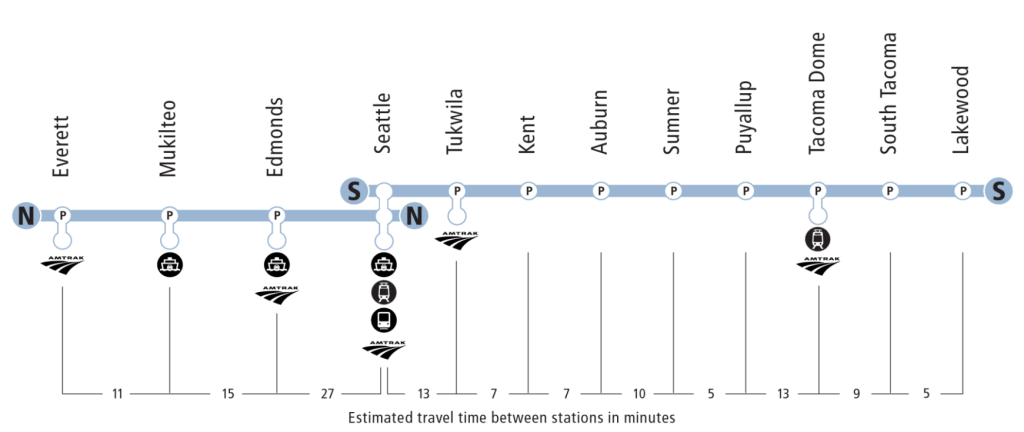
While N Line trips remain one-way, riders alighting at Sounder stops in Snohomish County will have additional connections to make, with Community Transit’s bus network seeing a significant reorganization at the same time as Sound Transit’s service change. While bus frequencies aren’t as robust as Community Transit envisions in its long-range plan, there are new bus connections that will connect Sounder stations with Lynnwood Link stations as well as Community Transit’s Swift bus rapid transit network.
Community Transit’s new Route 130 will connect Edmonds Station to both Lynnwood City Center and Mountlake Terrace Link stations, running every 30-60 minutes. The Route 909 will connect Edmonds Station to Mountlake Terrace Station, running every 50 minutes and timed with the Edmonds-Kingston state ferry. Riders disembarking at Mukilteo Station can connect to Lynnwood City Center with the new Route 117, running every 30 minutes until after 8pm. And riders in Everett will be able to use Sound Transit’s express bus Route 512 to connect with Lynnwood City Center.
The trips restorations are happening against the backdrop of Sound Transit giving Sounder’s S Line a full reset, with the potential for increased frequency that would move the line away from being primarily focused on weekday commute trips at traditional times of day. But a similar reset for the N Line is unlikely. While The Urbanist has made the case for looking at additional N Line stations that could potentially increase ridership, additional trips would need to be negotiated with BNSF railroad.
The four existing easements that Sound Transit purchased from BNSF in 2003 cost $258 million, a price that was dramatically higher than the $65 million had been assumed when Sounder North was promised to voters in 1996. That existing agreement is set to expire in 2030, which may prompt another round of discussions about the future of Sounder service in Snohomish County.
With Sounder’s costs per rider well over $40, some transit advocates argue that N Line funding could be more wisely invested elsewhere in the Sound Transit system. Concerns about the high cost-per-ride on the N Line are nothing new. In 2012, Sound Transit’s Citizen Oversight Panel took a long look at Sounder North operations and came away with a fairly bleak assessment of the line’s finances.
“At a certain point in the future, Sound Transit may have to come to terms with a reality that one of its services is not living up to a reasonable definition of viability,” the final report issued by the panel noted.
But for now, Sound Transit seems intent to utilize the easements that it has already negotiated with BNSF and getting the N Line back to pre-pandemic service levels.
Ryan Packer has been writing for The Urbanist since 2015, and currently reports full-time as Contributing Editor. Their beats are transportation, land use, public space, traffic safety, and obscure community meetings. Packer has also reported for other regional outlets including Capitol Hill Seattle, BikePortland, Seattle Met, and PubliCola. They live in the Capitol Hill neighborhood of Seattle.


